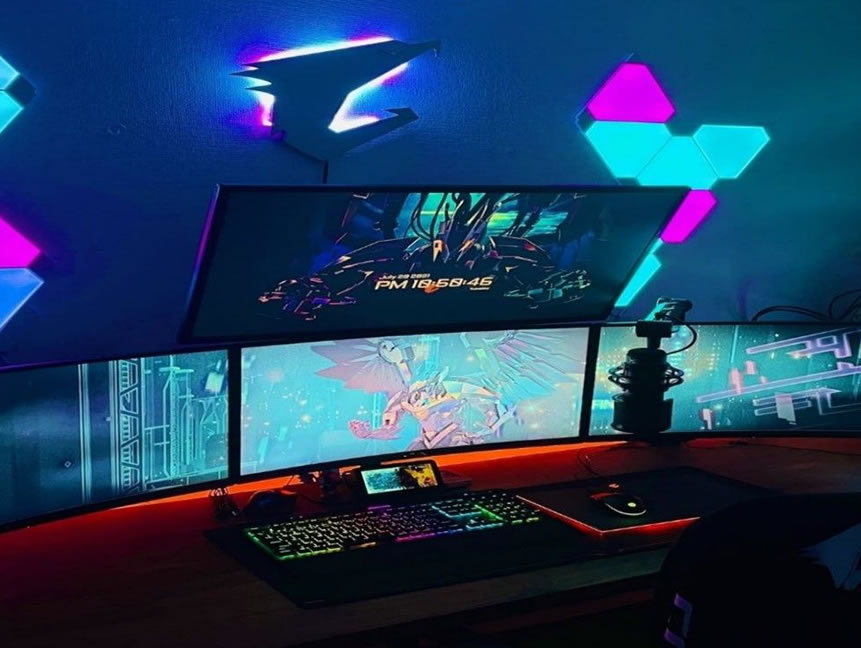




This article is a sub-topic under Virtualization Technology: Empowering Ethical Hackers And Red Teams For Cybersecurity Excellence
In the rapidly evolving field of cybersecurity, the role of ethical hackers and red teams continues to be vital in identifying vulnerabilities, enhancing defenses, and preparing organizations for cyber threats. Virtualization technology has been a cornerstone of their toolkit, enabling safe experimentation, realistic simulations, and controlled assessments. Looking ahead, the future of virtualization for ethical hackers and red teams promises exciting advancements that will further amplify their capabilities and impact on cybersecurity.
**1. Advanced Sandbox Environments:
Virtualization will continue to evolve with more sophisticated sandbox environments tailored for ethical hacking and red team operations. These sandboxes will mimic real-world systems and networks with increased accuracy, enabling testers to execute complex attack scenarios and study adversary behavior in highly realistic settings.
**2. Integration of AI and Machine Learning:
The integration of artificial intelligence (AI) and machine learning (ML) technologies into virtualization platforms will revolutionize ethical hacking and red teaming. AI-powered algorithms can analyze attack patterns, adapt to evolving threats, and suggest optimal testing scenarios, helping testers make informed decisions and anticipate attackers’ moves.
**3. Automated Attack Simulations:
Virtualization will enable the automation of attack simulations, allowing ethical hackers and red teams to create, deploy, and manage complex attack scenarios with minimal manual intervention. This will streamline testing processes, facilitate continuous monitoring, and enhance overall efficiency.
**4. Dynamic Threat Emulation:
Virtualization platforms will offer dynamic threat emulation capabilities, allowing ethical hackers to mimic the behavior of specific threat actors or attack groups. This feature will enhance the accuracy of red team assessments and provide organizations with insights into their susceptibility to targeted attacks.
**5. Cloud-Based Scalability:
Cloud computing and virtualization will become even more intertwined, enabling ethical hackers and red teams to scale their testing environments rapidly and cost-effectively. Cloud-based solutions will offer on-demand resources for large-scale simulations and assessments, catering to the evolving needs of cybersecurity professionals.
**6. Enhanced Data Analytics:
Virtualization platforms will incorporate advanced data analytics to extract actionable insights from the massive amount of data generated during ethical hacking and red team exercises. This data-driven approach will help identify trends, vulnerabilities, and areas for improvement in an organization’s cybersecurity posture.
**7. Holistic Cybersecurity Testing:
Virtualization will enable ethical hackers and red teams to perform holistic cybersecurity testing by simulating attacks on a variety of fronts, including applications, networks, IoT devices, and cloud infrastructure. This approach ensures comprehensive assessments that account for the interconnected nature of modern digital ecosystems.
**8. Secure DevOps Integration:
Virtualization technology will seamlessly integrate with the DevOps lifecycle, allowing organizations to identify and address security vulnerabilities early in the development process. This integration will promote a culture of security from the outset, reducing the risk of vulnerabilities reaching production environments.
**9. Continuous Learning Platforms:
Virtualization will serve as a foundation for continuous learning platforms, offering immersive training environments for ethical hackers and red teams to hone their skills. Gamified simulations and capture-the-flag challenges will provide ongoing skill development opportunities.
Conclusion:
The future of virtualization for ethical hackers and red teams is marked by innovation, adaptability, and transformative potential. As the cyber threat landscape evolves, virtualization technology will remain a cornerstone in the arsenal of cybersecurity professionals, enabling them to simulate real-world attacks, identify vulnerabilities, and enhance organizations’ ability to defend against cyber threats. By embracing these advancements, ethical hackers and red teams will continue to play a pivotal role in shaping a more secure digital future.
Read More
1. Virtualization and the Ethical Hacker’s Playground: Explain how virtualization creates a secure playground for ethical hackers and red teams to practice their craft. Discuss the benefits of isolating testing environments and utilizing virtual snapshots for quick recovery during intensive hacking exercises.
2. Unleashing the Red Team: Real-World Simulations through Virtualization: Explore how red teams use virtualization to conduct real-world simulations of cyberattacks. Discuss the strategic value of creating diverse virtual scenarios to identify vulnerabilities, assess risks, and enhance an organization’s overall cybersecurity posture.
3. The Role of Virtual Machines in Penetration Testing: Highlight the significance of virtual machines in penetration testing. Discuss how ethical hackers leverage VMs to perform penetration tests on various operating systems and applications while keeping the production environment safe from unintended consequences.
4. Building an Agile and Scalable Hacking Infrastructure: Guide ethical hackers and red teams on building an agile and scalable hacking infrastructure using virtualization. Discuss the benefits of cloud-based virtualization and orchestration tools in managing larger-scale engagements and assessing complex network topologies.
5. Virtualization and C2 Servers: Navigating the Nexus of Control and Security: Amidst this dynamic environment, the fusion of virtualization and Command and Control (C2) servers emerges as a critical nexus, offering both enhanced control and strengthened security measures
6. The Future of Virtualization for Ethical Hackers and Red Teams: Look ahead to the future of virtualization technology and its potential impact on the evolving landscape of ethical hacking and red teaming. Discuss how virtualization will continue to evolve to meet the growing demands of the cybersecurity industry.

Web Developer | Cybersecurity Advocate | Offensive Security Enthusiast
Passionate about Personal Transformation and Offensive Security, I’m Ehinomhen Okaiwele—a dedicated Web Developer and Cybersecurity Advocate. My mission is clear: elevating the “Cybersecurity Consciousness” of fellow Africans. Through my journey, I aim to empower individuals, fostering a safer digital landscape for our community. Join me in this transformative endeavor.